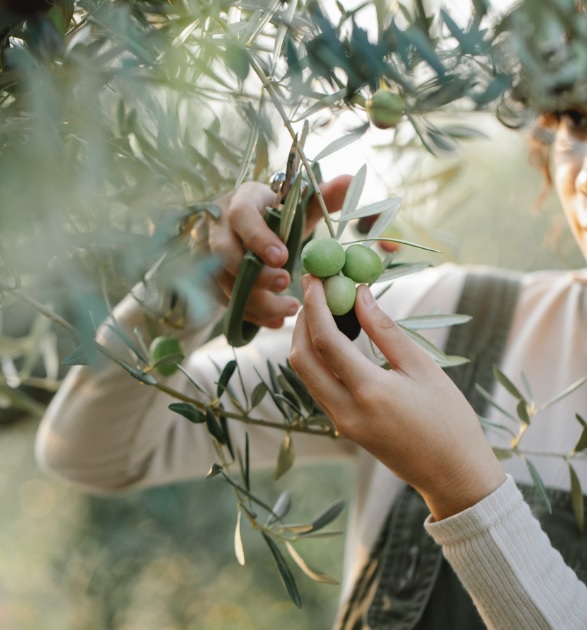In this article, we explore the intersection of gender, sexuality, and sustainable agriculture. While traditional agriculture has been defined by patriarchal and intimate heterosexual relationships, there is a growing movement to challenge these norms and incorporate a more diverse range of identities and practices in agriculture.
The Feminine Figure and Fertility in Agriculture
As in every aspect in social life, sexual relationships are fundamental when talking about agriculture. In different cultures the feminine figure it has usually been related with the image of fertility, different examples such as the Roman or Azteca’s goddess can be portrait of this ideas.
Even though this might sound from afar, nowadays there still different movements that try to assimilate to these same ideas or conceptions. Environmental feminisms are trying to re-appropriating these ideas and concepts, considering nature, women and environment as the same kind of form of resources.
Patriarchal and Intimate Heterosexual Relationships in Agriculture
However, this sexual relationships mentioned at the beginning, the ones that structure most of the different ways of living and working in agriculture are mostly defined along patriarchal and intimate heterosexual relationships. This tends to endorse the hetero-normative institution of marriage when it comes to the organization of work, home, and family. In this sense, it could lead to allocating women in a secondary position in the dynamic of farming, mostly depending on the men’s figure or it’s masculine characteristics, such as the idea of the breadwinner, once again, taking women’s agency away.
Queer Farmers and Alternative Paths in Family and Farming
This has been exposed not only by the different academia studies but also by the new ways of understanding agriculture that come from queer framers that do not fit in a more traditional model, developing alternatives paths in family and in farming. In this sense, as Isaac Leslie (2017, queer farmers: sexuality and the transition to sustainable agriculture) addresses, what does to be a farmer means is changing, as well as to be queer, and not only that, they are also been a contested. Some queer people don’t embrace mainstream LGBT movement’s, meaning they would rather see wider acceptance of alternative queer family and relationship models, not necessarily based on a home life of a long-term, monogamous relationship.
Sustainable Agriculture and Gender Norms
Moreover, to understand the relationship between gender and agriculture, it is important to mention the idea in sustainable agriculture. The definition of sustainable agriculture is still debated but it does not stand in binary opposition to conventional (capitalist industry) agriculture. It means to include social, economic, and environmental dimensions, everything linked to sustainability. Regardless of agriculture, and specifically farming, being a gendered process (ex. accessing land), women are transgressing traditional gender roles by claiming the identity of “farmer”, this happening more often in a sustainable environment rather in industrial agricultural spaces, because of the feeling of independence and autonomy, the opportunity to do traditionally masculine tasks, and a work culture that does not emphasize mechanization or synthetic chemical use.
Queer People in Rural Areas
But it is not only about gender norms in themselves but also about the role of sexuality and heteronormativity. Sometimes there has been a tendency to establish that queer people tend to be marginalized or forced into hiding, while different studies from rural areas state that they have “long flourished in rural areas in ways often ignored by history”. The different narratives around rural space influence how rural queer people gain acceptance and how they experience rurality, queerness, and gender, such as the hypervisiblity of queer people in small towns, quietly accepted if they have close community ties, lesbians and gays may use masculinized discourses and practices to gain acceptance in rural areas, etc.
Embrace of Queer People in Agriculture and Application of Queer Perspectives
Sustainable agriculture it is occasionally thought in contrast to the mainstream LGBT movements who focus on urban life and consumerism, rejecting the mainstream LGBT movement’s emphasis on it as a consequence to environmental values, economic constraints, or, even wide critique of normative social structures.
In this sense, when we talk about transition to alternative agricultural systems we directly involve the renegotiation of the entrenched gender norms. Sustainable agriculture allows queer farmers to develope a more diversified skill set and practicing anticapitalist values, and other specific value related to individual agency including farmer dress and gender presentation.
However, queer farmers’ experiences expose the still existent heterosexism embedded in sustainable agriculture too. At the same time, the promise of queer sustainability lies in the creative ways that queer farmers have turned the challenge of overcoming heterosexism into alternative paths in work, home, and family.
Different ways to get to a (queer) sustainable agriculture, allowing new performances and systems:
- Renegotiating entrenched gender norms.
- Detach cultural and traditional associated tasks to one specific gender question whether it is truly sustainable to base the economic viability of farms on sexualized structures such as marriage and monogamy.
- Not emphasizing mechanization or synthetic chemical use.
- Embrace queer people in agriculture but also apply queer perspectives to further interrogate how sexuality shapes our food futures.
In conclusion, the intersection of gender, sexuality, and sustainable agriculture is complex and multifaceted. By challenging heteronormativity and embracing queer perspectives, we can create more sustainable and diverse agricultural systems that prioritize social, economic, and environmental sustainability.

Gender Equality
At Genderscope, we understand the importance of gender equality in sustainable agriculture and are committed to providing our clients with expert consultancy services in this area. Our team of gender equality consultants is dedicated to helping sustainable agriculture create a more inclusive and diverse workplace, where women can thrive and achieve their full potential.
Contact us today to learn more about our gender equality consultancy services and how we can support your sustainable agriculture in promoting gender equality and empowering women.

